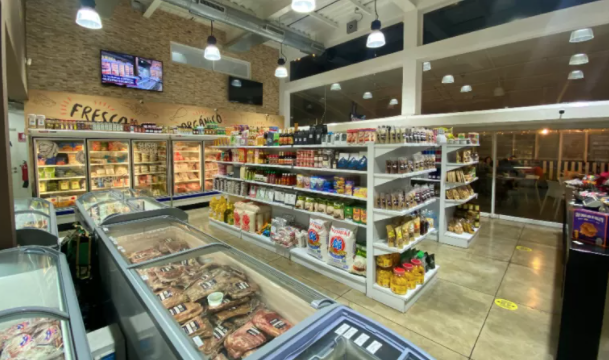In the international media, the Venezuelan government is still often referred to with the prefix ‘socialist’. Inside the country, a disorderly deregulation process is opening more spaces to the market, yet it is also creating apparent new inequalities. Towards what kind of economic system is Venezuela moving? Faced with a dearth of public data, we started to undertake surveys in three spheres of the economy, hoping to provide a few pieces to the puzzle that the actual functioning of Venezuela’s current economy represent. What we found was more of a predatory and authoritarian capitalism than socialism.
The global rise of authoritarian capitalism
It is evidently clear that capitalism is not the same system across the world. Although always involving for profit activity by private actors, capitalism is regulated in different ways and for different purposes. Most countries reserve some spaces, such as health, education and child-care, to be governed by other principles than profit, and see some kind of state involvement in the economy. Recent developments have made it abundantly clear that there is no automatic association between capitalism and democracy. To the contrary, we have seen the rise of capitalist systems in authoritarian countries across the world, including of course in China. Another dimension that distinguishes different capitalist systems is the strength of institutions. In states with weak institutions, it is difficult to make a for profit economy compatible with social goals such as providing a certain level of welfare for everybody. However, weak institutions may co-exist with authoritarian governments that will seek to direct the economy in a way that strengthens its political control and make up for weak institutions. This is the case of nominally socialist countries that may employ forms of market reforms at the behest of the political leadership for their benefit and that of close allies.
With a team coordinated by Manuel Sutherland, director of the Labor Research and Information Center (CIFO) and supervised by Antulio Rosales of the University of New Brunswick and myself, we have undertaken three surveys that have sought to bring about information on different aspects of the new economy. How is it linked to the ad-hoc process of deregulation of the economy? How do people actually survive in what has become a high-cost economy but where salaries are still at ‘hunger levels’?
Illegal mining
The first part of the research was a survey of workers in illegal mining in the state of Bolivar.[1] As a means of confronting the dwindling income from oil production, in 2016 the Maduro government established the special development zone of Arco Minero del Orinoco (AMO) with the objective of formalizing alliances and attract new investments in the Bolivar state. With that, the state increased its presence in the area. However, existing informal practices of territorial control by armed groups continued, and the illegal production and sale of gold increased.[2] In our survey among workers in the area, we found that they endured 12 hours and longer workdays. They mostly got paid in grams of gold. There were no forms of social protection, and they answered to a combination of local gangs (sindicatos) originally emerging out of labor unions, guerrillas, mafias, and the National Guard. These actors all engage in extortion, charging workers ‘vacunas’ (protection money), in a lawless, predatory economy. The extortion payments added to the extreme cost of living in the area, with prices from 4 to 5 times higher than in the central areas of the country due to a number of market-hindrances.
The new face of inequality: the bodegones
The reality of the illegal mining areas contrasts sharply with that of the new import-stores, so called bodegones (bodegas). As a means to confront the widespread scarcity of goods and the related inflation, the prohibition of private exchange of dollars were relaxed. In 2018, the government controlled National Constituent Assembly repealed the Illicit Exchange Law. This signaled the end of currency controls and the governmental blessing of the informal dollarization. This, and several temporary exemptions from tariffs and import regulations, allowed for large scale importations of goods, including so called “door-to-door” services – direct importation of goods by private persons without any tariffs, or sanitary regulations.
This is the backdrop for the emergence of the so called bodegones, that started with small stores selling imported goods in a few high-end locations in the capital. Over time, they evolved into a national phenomenon and included enormous supermarkets in urban areas across the countries that sold regular groceries as well as a wide assortment of luxury goods. In late 2020, we undertook 81 interviews of responsible of bodegones and 103 customers in 73 bodegones, of the estimated 613 existing at the time. [3] They were found in upscale neighborhoods in the states of Aragua, Miranda, Mérida, Barinas and Zulia, in addition to the Capital District. Most of the establishments (81%) were established after the dollarization, and 47% were less than two years old. Most of the owners had no prior experience in the retail business, indicating that this is a business that may contribute to establishing a new class of businesspeople. The bodegones are clearly one of the expressions of the growing importance of the dollar. We found that although 66% of the purchases were made in the national currency, this accounted for minor purchases, equivalent of 1 or 2 dollars. The high amounts were paid in dollars. Interestingly, most workers of the bodegones (56%) receive their wages in Bolivares, and only 12% only in dollars or euros. The wages, while significantly higher than the minimum-wage and that paid by in the public sector, was also low: 73% made less than 60$ a month, and 33% made between 20$ and 40$. Prices of the bodegones go from the relatively reasonable, to the extreme. However, overall prices are high in spite of the fact that bodegones do not pay taxes nor tariffs, due in part to the overvaluation of the currency. [4] As a Norwegian I found it almost amusing to find Norwegian salmon in original wrapping with Norwegian text at a price around 4 times higher than I would have had to pay in my expensive home country. A family meal of salmon would cost the equivalent to the average monthly wage of one of the workers in the same bodegon it was sold. Thus, in many aspects the bodegones are a face of the new inequalities. They are owned by a group of new businesspeople making a living selling luxury goods in an unregulated market to high-end customers at prices that are completely prohibitive for most people.
Survival in the public sector
The third aspect we have surveyed are survival strategies by public sector workers. Our team undertook 207 interviews with public employees in 68 different institutions in 8 states, on a number of issues, including wages, survival strategies and politicization of the workplace. In terms of wages, 47% made less than 6$ a month; 83 percent made less than 15$ a month. Most would in addition get wages in-kind in terms of food, but in 47% of the cases, it was worth less than 1$ a month. Carrying the controversial and governmental controlled “homeland identity card”, did for many mean an additional bonus. However, in two thirds of the cases it made up less than 10$ a month, and for most a lot less. Almost everyone complemented their salaries in one way or another. Of the respondents, 68% held additional positions or their own business. Over 70% stayed in the job essentially as a means of keeping some stability or accessing political contacts, while hoping for better times. When asked about work-place training, only 34% of the informants answered to have received any, and of these most of them had only received ideological training (in 85% of the cases).
The picture that emerges from our, admittedly limited, survey is one of a rather fragmented form of capitalism where some spaces are opened to private competition, but in which regulation is politicized and opportunities for most people are few. The spaces for capitalist production and exchange has been further amplified as the Anti-blockade law adopted in 2020 has opened for large scale privatization of public enterprises, benefiting mostly governmental allies. Recently, the country has left behind the third longest period of hyperinflation ever registered[5], and seen a slight increase in oil-production and economic growth are registered while dollarization continues[6]. All the time as he Maduro-government has strengthened its grip on power, and democracy remains battered, with the country holding mostly unfair and scarcely-competitive elections that do not contest the power of the executive.
Our surveys open a number of additional questions regarding towards what economic model Venezuela is moving. Where do all the customers of the bodegones get their dollars from? Who are the new elites controlling emerging businesses? How deep are really the inequalities in the economy? It is too early to draw conclusions on these big questions, but what is clear is that the current system have more features of an authoritarian capitalism than the democratic socialism that the chavistas originally aspired to established.













